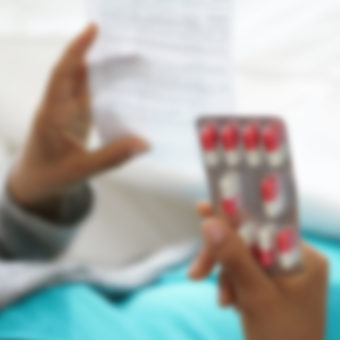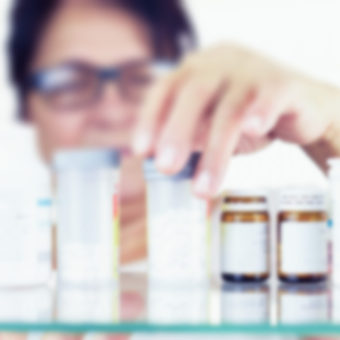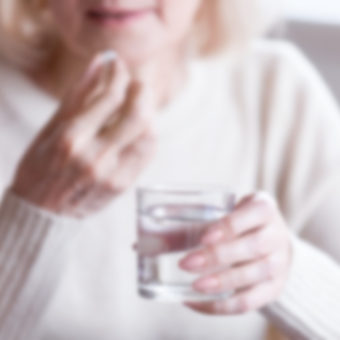

Should you flush your unwanted, unused, or expired medicines? The short answer: in most cases, no. However, the U.S. Food and Drug Administration (FDA) maintains a short list of products that can sometimes be flushed down the toilet or sink, provided that another take-back option is not available, and that flushing is permitted by your local regulations. Keep reading to learn more about the FDA Flush List, steps to take before disposal, and how to dispose of medicines on this list.
Any medicine can have unintended effects if taken incorrectly or by someone who it is not intended for. Certain medicines, while safe and effective when used exactly as prescribed, have the potential to be harmful when used by someone other than the person for whom they were prescribed. To help keep children, pets, and others in your household safe from accidental ingestion or contact with products that could be potentially dangerous, the FDA maintains a list of medicines that can be flushed down the toilet only when take-back options (such as a local kiosk or upcoming event) are not available, and it is permitted by local regulations.
The Flush List can be found on the FDA website here.
Under NO circumstance should any item NOT on the FDA Flush List be disposed of by flushing and it is only recommended if other disposal options are not readily available, and it is permitted by local regulations. Before disposal, there are three steps that you should take to confirm that flushing is an option available to you.
Step 1: Check your local disposal regulations.
Once you have confirmed that your medicine is on this list, it’s recommended that you first check and follow your local disposal requirements: never throw a medicine directly into your household toilet, trash, or sink without checking and following local regulations.
Step 2: Check for take-back options available in your area.
Keep in mind that the FDA only recommends flushing in the event that a local take-back option is not available. Before resorting to flushing your unwanted medicines, check our convenient locator tool to find out if a kiosk or location offering free in-home disposal kits is available in your area. It’s always a good idea to call the number provided for your local kiosk to confirm the types of products accepted and current hours of operation. If you can’t make it to a kiosk immediately, keep in mind that it’s particularly important to store products on the FDA Flush List in a secure location (such as a safe or lock-box) to prevent others in your household from inadvertently coming into contact with them.
Step 3: Check your medicine’s label and packaging for specific disposal instructions.
Before disposal, check your medicine’s label, packaging, and any accompanying materials. If specific disposal information is provided, follow those instructions. If this information is not readily available to you, the FDA Flush List includes links to each listed medicine’s disposal information for your reference.
If your unwanted medicine is included on the FDA Flush List, your local disposal requirements permit flushing, and a local take-back option is not available to you, follow the instructions provided with your medicine to flush the product down your toilet or sink (depending on the exact instructions provided). Before disposing of the product’s empty packaging in your household trash, be sure to remove any personally-identifying information.
Taking the proper precautions with medicines included on the FDA Flush List can help to ensure the health and safety of your family, pets, and even your community waste management professionals. Remember that the products on this list have the potential to be harmful when ingested (or in some cases, as with patches, touched) by someone other than the person for whom they were prescribed, and that it’s critical to take additional precautions when handling, storing, and disposing of these medicines.

Prescription Medication Guides ~ It’s important to read the label of any medicine before use – but what about the…
Read More
It's called a medicine cabinet for a reason...isn't it? ~ While you may have been storing your prescription medicines, over-the-counter…
Read More
Take your treatment plan seriously ~ Do you fill all your prescriptions on time? Do you skip doses or take…
Read More
Four Ways to Find Out ~ We’re striving to educate prescription and over-the-counter medication users about how to follow instructions…
Read More